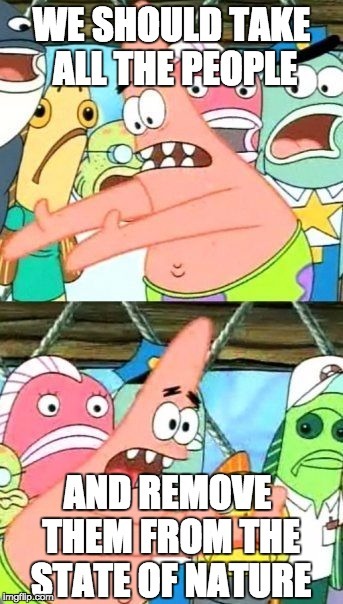AustLit
-
With this gritty and somewhat pessimistic human nature on which to build, Hobbes still believes that society can have morality: in fact, he argues that societies need morality to function. This morality comes in the form of the social contract.
It is difficult to separate Hobbes' ethics from his politics, and what can be separated is at times vague. He sometimes falls close to moral relativism in his abandonment of objective morality other than in social contracts, which I disagree with.
Indeed, Hobbes at times seems uncertain how human agreements should work other than that they ought to pursue his natural laws, which any man with his sense of logic can deduce. He also claims that outside of this socially contracted state of natural law and enforcement by an overseeing figure, there is no human requirement to act morally at all (Hobbes 1651: 44-47). By Hobbes' theory, morals may not even exist prior to the contracting into society (Hobbes 1651: 44-47). This abandonment of objective morality, in the absence of social contracts, can sometimes lead him close to moral relativism.
While this question of pre-social morality is not central to my project in this portfolio, it is an interesting one. To imagine that morality ceases to exist in the absence of social contracts assumes a substantive belief in the intrinsic functionality of morality as an arrangement of convenience.
-
Do We Need Government?
(Reichle 2014).
-
-
You might be interested in...





